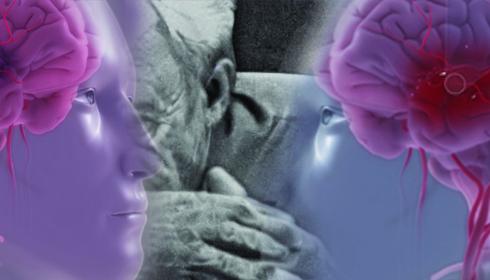
New Study Outlines Cognitive Profiles for Early Diagnosis of Dementia with Lewy Bodies
A groundbreaking study published recently in Alzheimer’s & Dementia has outlined cognitive profiles that may help in the early diagnosis of dementia with Lewy bodies (DLB), a brain disease that affects 10-20% of people with dementia. Lewy bodies, unusual protein clumps found in the brain's nerve cells, give the disease its name. These clumps affect parts of the brain that control memory, thinking, movement, and sleep. People with DLB have problems with thinking, changing levels of alertness and focus, seeing things that aren't there, and movement issues, and they can react badly to antipsychotic drugs, which may lead to serious side effects.
Despite being the second most common neurodegenerative dementia after Alzheimer’s Disease (AD), DLB is often misdiagnosed, leading to delays in appropriate treatment and care for affected people.
“Criteria for better identifying DLB exists in research settings, but we wanted to pull research studies together to establish something applicable for clinical settings,” stated Dr. Ece Bayram, MD, PhD, assistant professor of neurology at the University of Colorado Anschutz Medical Campus and the study’s lead author. The team’s goal was to create a standardised cognitive profile by pooling data from existing publications to distinguish DLB from Alzheimer’s disease in the pre-dementia stage.
DLB and AD share overlapping symptoms, complicating diagnosis in clinical settings. However, the meta-analysis revealed key differences in cognitive functioning between individuals with DLB and those with AD at the pre-dementia stage. Notably, patients with DLB exhibited more pronounced deficits in attention, processing speed, and executive function, while showing relatively better immediate recall and memory compared to AD patients.
“Identifying cognitive profiles gave us the outcome necessary to suggest guidelines that practitioners could easily be trained in to better tailor plans of care,” said Dr. Bayram. Unlike expensive imaging or invasive biomarker tests, cognitive assessments offer a practical and accessible approach to diagnosis. “Providing a framework for clinical assessment versus biomarker testing means more accessibility for practitioners. It is easier and cheaper to train in providing cognitive assessments than administering imaging or invasive biomarker tests,” she added.
This advancement is particularly significant because early identification of DLB can greatly improve patient outcomes. Accurate diagnosis at the pre-dementia stage allows for better planning and management of the disease, reducing the burden on both patients and caregivers. Additionally, timely intervention may help mitigate some of the more severe symptoms associated with DLB.
Dr. Bayram highlighted another crucial benefit of early diagnosis: medication management. DLB patients often react negatively to common antipsychotic medications like haloperidol, which can exacerbate their symptoms. “People with DLB are reactive to certain types of commonly prescribed medications for psychosis, such as haloperidol, that tend to worsen their condition,” she noted. Correct identification of the form of dementia ensures that patients receive appropriate symptomatic treatment, improving their quality of life.
Furthermore, the study’s findings could have far-reaching implications for ongoing and future clinical trials focused on disease modification. Dr. Bayram explained, "We are witnessing an increasing number of treatment trials that concentrate on disease modification for both Alzheimer's and Lewy body diseases." “Having validated clinical criteria to diagnose DLB before dementia hits means we can prevent it from happening instead of reacting to it after significant loss in the brain has occurred. These types of clinical assessments provide opportunities for everyone to receive care even without access to a speciality center.”
The researchers believe that their findings will encourage clinicians to adopt cognitive assessment methods for early diagnosis, potentially transforming the standard of care for dementia patients. As the field of dementia research continues to advance, studies like this pave the way for improved preventive measures and personalised care plans.